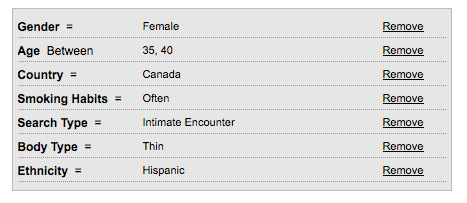Offer A Quick Fix = Get A Quick Conversion
Not too long ago, I wrote a post praising the brilliance of Ca$hvertising as a must-have book for all marketers. Hopefully a few of you have read it by now and can verify that I wasn’t bending you over in the name of an Amazon commission. That book really is the dog’s bollocks. And if you don’t have it, you should order it a-sap.
One of the many subjects that Ca$hvertising touches on is the importance of offering a quick fix in your advertising campaigns. I thought I’d make an effort to cover why this is so important, and warn you of how being a misleading little rascal can land you in a hot tub of shit.
By the very competitive nature of advertising, we’ve reached a tipping point. Consumers can find a mind-boggling number of reasons not to buy a product. One of those reasons is that a product simply doesn’t capture their imagination. It doesn’t promise a life changing impact overnight. The cold hard truth that losing weight can take months of blood, sweat and tears is often much less of a sales pitch than oh – I don’t know – lose half your body weight in 4 weeks.
 To many affiliates, offering a quick fix is simple. Lie until you’re purple in the face and pretend you’re the fucking gingerbread man when the FTC comes calling. We only have to look as far as the acai berry craze to see how the promotion of a “quick fix” can get out of hand. Really bloody quickly.
To many affiliates, offering a quick fix is simple. Lie until you’re purple in the face and pretend you’re the fucking gingerbread man when the FTC comes calling. We only have to look as far as the acai berry craze to see how the promotion of a “quick fix” can get out of hand. Really bloody quickly.
It’s easy for me to sit here and rag on affiliates for lying with bold promises that are never going to come to fruition. But that’d make me a massive hypocrite. We all lie in our marketing efforts, and those of us who don’t simply forget to tell the truth.
If you’re going to learn anything from the acai berry gravy train, let it be that a quick fix will always prize that credit card out of the pocket. And there are techniques we can use that exploit this need for a quick fix, without getting our balls trapped in the crocodile jaws of [Insert General Attorney of Choice here]. You don’t have to sell your soul down the river.
It’s possible to build trust as an affiliate, and I’ve long stressed a personal desire to distance myself from slinging rebills that leave nothing but a sour taste in the mouth. Offering a quick fix doesn’t have to involve blatant lying though. It can simply be smart savvy marketing.
A technique I played with quite recently involved giving away a free ebook to my dating leads. We’ve all heard of Plenty of Fish, right? I haven’t spoken about *that* traffic source before, mainly because it served to benefit nobody who was already advertising there (rising click costs, invasion of newbies etc).
But if you’re advertising on Plenty of Fish, what do you know about your target audience? We can guess that we’re marketing to singletons who still haven’t found that special somebody. Despite putting in a clear effort by joining a dating site.
I think the reason so many affiliates fail with their advertising efforts on POF is because they forget to sell the appeal of the site they’re promoting. Think about what would constitute a “quick fix” to an existing dating site member. Maybe the women aren’t replying to your messages, maybe the guys are a bunch of narcissistic dicks with zero conversation skills. Either way, you need to establish something that you can fix.
I chose to give away a free ebook offering “ten explosive tricks for getting girls to message you on dating sites”. I will have you know that I outsourced it and didn’t write that shit myself. I then built out a landing page with an opt-in form.
“Sign up to my hot-shit newsletter and not only will I show you how to get women messaging you on dating sites, but I’ll send you an exclusive rare invitation to the best dating site to practice these tricks. I can only give away this link to [7] guys. If you’re sick of being Read & Deleted, you need to ACT NOW!”
Boom shake, shake, shake the room. Conversions, opt-ins, orgasms, profit. Everybody wins. By offering a quick fix to the biggest problem a guy can face on a dating site – being ignored like he’s carrying the plague (obviously I outsourced the research too) – you can slice through the competition and simply convert better than everybody else. Not to mention, if you use this method, you’re building yourself a long term business asset in the list.
But think about the concept. Don’t just jack my shit and run it for yourself. The second you place yourself in the collective shoes of your target market, you can find something to fix. Sometimes it’s necessary to develop your own freebie giveaways, like I did with my ebook, in order to present that quick fix without scamming the user or placing false promises in a service that might not be able to deliver.
There’s only one trick that works better than a quick fix. And that’s a quick fix that won’t be here tomorrow. So always remember to splash your landing pages with the urgency of countdown tickers, expiration dates and whatever else Ryan Eagle has recently added to his Network Application page.
It’s a sad state of affairs that consumers are so hesitant to place their faith in anything that doesn’t offer overnight results. But that’s the reality, so we have to adapt to it. Ask yourself what you can do for the user today. Then focus on developing a brand that’s simply too convenient for them to walk away from. If you find a quick fix, you’ll get a quick conversion.
Still haven’t bought Ca$hvertising?
Last time I recommended Ca$hvertising, the book was out of stock within a few days so I’ve got good faith that you guys went out and bought it. If you don’t already own it, buy it now.
Today is a rarity. I’ve actually published two posts in 24 hours. If you’re looking for some more reading, check out How An Affiliate Deals With 9am – A guest post I contributed to Kirsty’s blog over at Affiliate Stuff. Thanks for the guest spot, Kirsty.
Finally, follow me on Twitter.


An excellent post, Finch, though they will keep doing it the same way, I'm pretty sure about that.